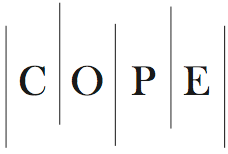About GeoHazards
Aims
GeoHazards (ISSN 2624-795X) is an open access journal focused on scientific research concerning geomorphological hazards, including both endogenous and exogenous hazards, as well as those related to climate change and human activity. The journal publishes original research articles, reviews, technical notes, and Special Issues on particular subjects.
Manuscripts related to the development, validation, and practical implementation of innovative techniques, methods and tools for the assessment, analysis and mitigation of geomorphological hazards are particularly welcome. GeoHazards also strongly encourages authors to submit electronic supplementary material, including the complete calculation and experimental procedure details, as well as source codes.
GeoHazards encourages scientists to present their experimental and theoretical results in comprehensive detail. Therefore, the journal imposes no restrictions on the length of papers. Authors should provide full details to enable the replication of results.
Scope
The broad scope of GeoHazards encompasses the following research areas:
Geophysical/ Geological Hazards: earthquakes; volcanoes; and tsunamis.
Climatological and Climate-Change-Related Hazards: droughts; extreme heat; desertification; soil erosion; soil expansion; coastal erosion; and sea level-rise.
Meteorological Hazards: wildfires; hurricanes, typhoons, cyclones and tornadoes; monsoons; thunderstorms; extreme temperatures; severe winter storms; windstorms; and sand/dust storms.
Hydrological Hazards: storm surges; river floods; flash floods; and land subsidence.
Mass-Movement Hazards: debris movements (landslides, rock falls, debris flows, mudflows and avalanches); and sinkholes.
Anthropogenic and Technological Hazards: terrorism; explosions; urban fires; air pollution and atmospheric dispersion; industrial accidents; infrastructure failures; induced earthquakes; technological accidents triggered by natural disasters.
Applications: detecting, monitoring, mapping, and modeling hazards (frequencies and magnitudes; spatial and temporal variability); risk assessment and damage scenarios; multi-hazard analyses and cascading effects; risk and vulnerability reduction; physical, social and economic resilience; disaster response and reconstruction; social exposure; and risk perception, communication and education.
MDPI Publication Ethics Statement
 MDPI is a member of the Committee on Publication Ethics (COPE).
MDPI takes the responsibility to enforce a rigorous peer-review together with strict ethical policies and standards to ensure to add
high quality scientific works to the field of scholarly publication. Unfortunately, cases of plagiarism, data falsification, inappropriate
authorship credit, and the like, do arise. MDPI takes such publishing ethics issues very seriously and our editors are trained to proceed in
such cases with a zero tolerance policy. To verify the originality of content submitted to our journals, we use iThenticate to check submissions against previous publications.
MDPI is a member of the Committee on Publication Ethics (COPE).
MDPI takes the responsibility to enforce a rigorous peer-review together with strict ethical policies and standards to ensure to add
high quality scientific works to the field of scholarly publication. Unfortunately, cases of plagiarism, data falsification, inappropriate
authorship credit, and the like, do arise. MDPI takes such publishing ethics issues very seriously and our editors are trained to proceed in
such cases with a zero tolerance policy. To verify the originality of content submitted to our journals, we use iThenticate to check submissions against previous publications.
Book Reviews
Authors and publishers are encouraged to send review copies of their recent related books to the following address. Received books will be listed as Books Received within the journal's News & Announcements section.
MDPI
Grosspeteranlage 5
CH-4052 Basel
Switzerland
Copyright / Open Access
Articles published in GeoHazards will be Open-Access articles distributed under the terms and conditions of the Creative Commons Attribution License (CC BY). The copyright is retained by the author(s). MDPI will insert the following note at the end of the published text:
Reprints may be ordered. Please contact for more information on how to order reprints. Announcements regarding academic activities such as conferences are published for free in the News & Announcements section of the journal. Advertisement can be either published or placed on the pertinent website. Contact e-mail address is . For further MDPI contacts, see here.Reprints
Announcement and Advertisement
Editorial Office
Contact us




